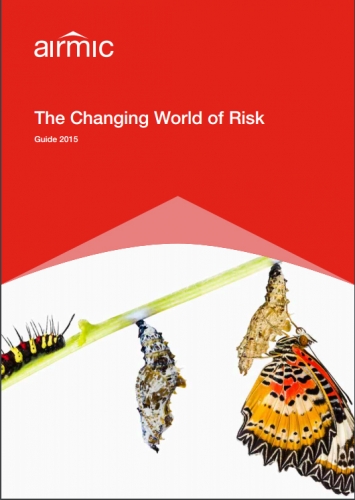The Changing World of Risk
1. Introduction
Airmic published its highly acclaimed ‘Roads to Resilience’ research in February 2014. In the 12 months since publication, the risk management world has shown its continual propensity to change. During that time, we have welcomed an update to the UK Corporate Governance Code, seen a new Insurance Act signed into law and welcomed the first British Standard on Organisational Resilience (BS65000).
There is no doubt that the challenges of globalisation, digitisation and new technology combined with the pace of change and increasing complexity and aggregation of risks are putting more demands on boards, which retain ultimate responsibility for managing risk and compliance. With the increased transparency of operating environments and the potential need for instant response to any incident, the challenge of becoming and being a resilient organisation is already material and steadily increasing.
What has remained the same is the criticality of good risk management. Organisations continue to face crises. Some of these have been external, caused by unforeseen events or lack of planned response, while others have begun inside the organisation, with senior management taking poor decisions, condoning bad practice or being compromised by the actions of their colleagues. Roads to Resilience identified five clear principles that would have allowed these companies to better deal with their situations. Twelve months from publication, the lessons from Roads to Resilience remain pertinent and relevant to supporting business success.
This guide has three main aims:
- Changing risk requirements: to provide risk managers with an understanding of the changing governance and risk management expectations of the board and guidance on how to approach the new challenges
- Changing role of risk managers: to support risk managers in understanding the challenges they face in elevating their role from risk manager to risk leader and in moving to an environment with risk leadership expectations
- Changing risk process: to give risk managers recommendations on how best to measure resilience so that they can ensure resilience across all five principles and to provide practical advice on how to improve resilience.
- Fill out an application Our membership manager will assess your eligibility against our criteria.
- Complete your profileIf you are eligible for membership you will be asked to answer a few questions about yourself.
- PaymentYou can make payment online using a card or request an invoice.

